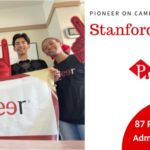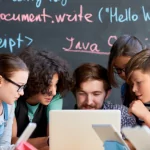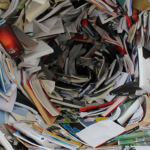“It’s a privilege to be able to understand the universe, and I want to decode it as much as I can while I’m here.”
Pioneer scholar Mila’s interest in science began when she was a child. A native of “tiny” North Macedonia, Mila loved trips to the mountains when she could “just look at the stars.” Her natural curiosity led her to learn more about the stars, and that interest led her to physics and a fascination with the mathematical algorithms that govern the universe. High school gave her an opportunity to study not only physics, but also a broader range of natural sciences. “I like to compare knowledge from different areas, so that I can implement it in physics, because to my understanding, physics is the basis of the other natural sciences,” she says.
Mila is particularly interested in the theoretical side of physics, “asking the big questions.” When her Pioneer Research Program that combined physics and engineering required her to do a hands-on practical research project, Mila creatively used her interest in theoretical physics as the basis for her physical project. She had been interested in Planck’s Constant,a numerical value that sets a specific fitting parameter for physical interactions at the quantum scale and usually requires very expensive equipment to measure. Mila wondered if the basic equipment that her cohort was using during their group sessions would be able to do the calculations in a useful way. Her initial results were so encouraging that her professor suggested she expand on her work as her Pioneer research topic. The result was a practical application that will make it possible for students and researchers without access to very sophisticated equipment to calculate and use this basic concept satisfactorily with very inexpensive tools.
Mila is pleased that her work has educational value. Her Pioneer experience helped her realize how interconnected the scientific community is, and how important it is to collaborate with colleagues. Her professor’s encouragement was one such experience. Her communications with her international cohort peers was another. “Every country has different capacities of conducting scientific research,” she says. She found it important to share knowledge and experiences with peers from countries much better equipped than her own. It was a foretaste of sharing experiences in the larger scientific community.
Mila is also grateful that she learned through Pioneer how to write a scientific paper in the proper format, using the proper language. “In the scientific community, you cannot afford to make a mistake or to make a generalization or just to use a different word that has a slightly different meaning,” she says.
As a result of doing this rigorous work, Mila feels well prepared to begin her college years. The independent work taught her “better time management and more responsibility,” and proved to her that she can accomplish what she previously thought impossible. Mila will continue her research career at Princeton, which she chose because it has a separate astrophysics department. She is eager to investigate one of the great physics puzzles: how the “two amazing theories” of quantum mechanics and general relativity “contradict each other in fundamental ways.”

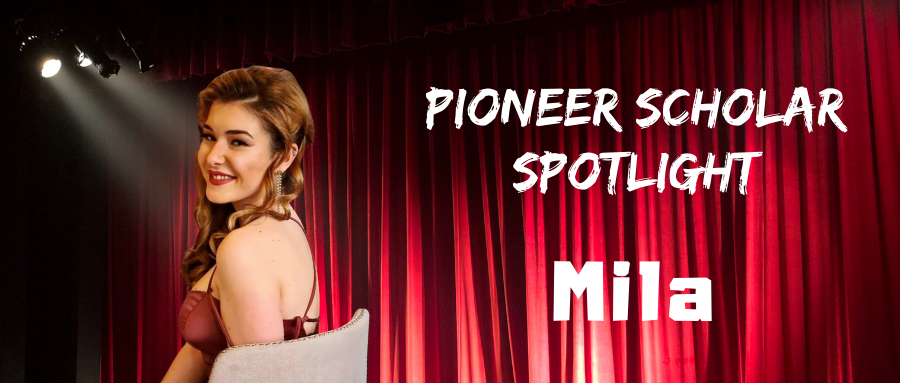
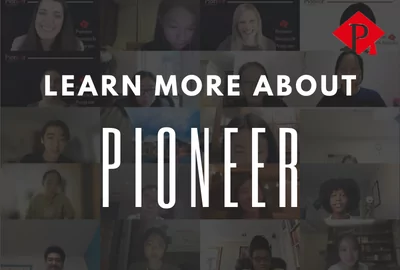 Doing research is commonplace.
Doing research is commonplace.
